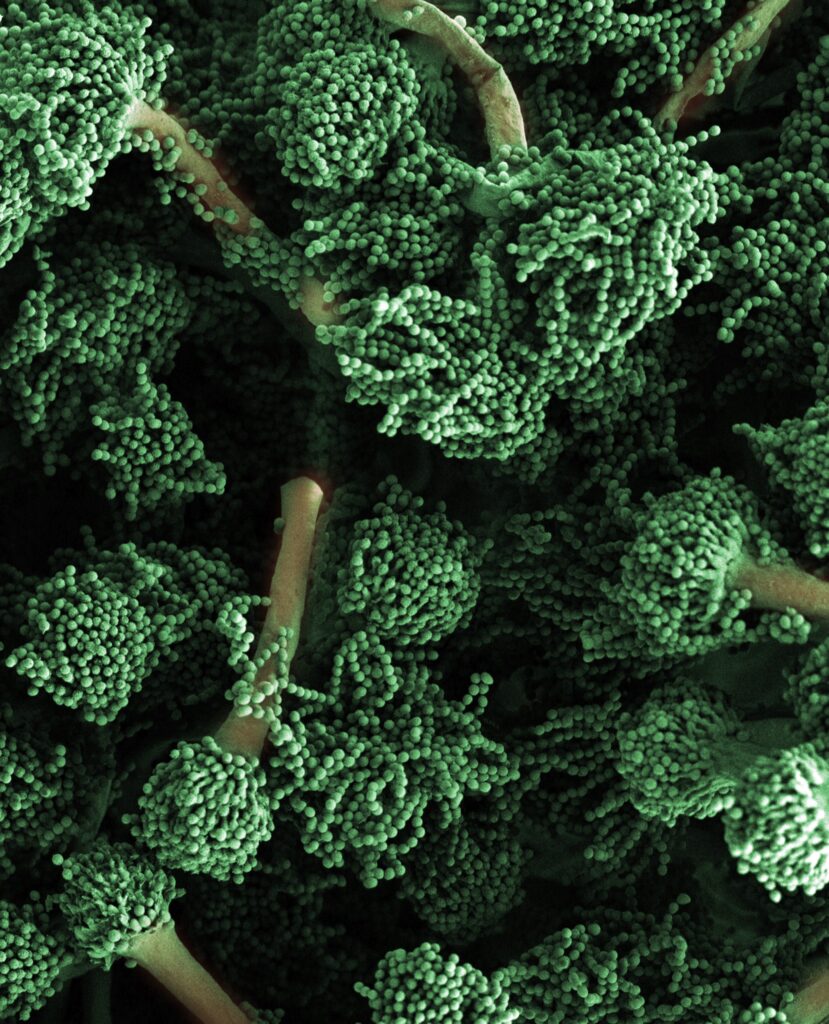Mouse genetic models of barrier immunity dysfunction: Role of the microbiome in modifying disease phenotype
Aims
The human microbiome is a term used to describe the bacteria and other microorganisms that live on, and in, the human body. These microorganisms coexist with us. They are with us from birth and they play an important role in shaping the development of our immune system.
Much of the interaction between the microbiome and the immune system occurs at specialised barrier surfaces, such as those found in the gut and lung. These surfaces are adapted to protect the body from invasion. They also enable human immune cells to interact with both good and potentially harmful microbes and the substances (metabolites) they produce.
Genetic diseases (diseases caused by errors in human DNA sequence) may sometimes result in disruption of normal function at barrier surfaces. This is true of diseases such as cystic fibrosis (CF) and inflammatory bowel disease (IBD), as well as a number of rare genetic conditions. Under these circumstances, the breakdown of normal interactions between the body (in particular the immune system) and its microbiome may contribute significantly to disease development.
Understanding the contribution of the human microbiome to genetic diseases involving disruption to barrier surfaces is therefore vital to clarify how these diseases develop and create opportunities for new drug development. It may also lead to the possibility to manipulate the microbiome itself as a novel form of treatment.
A major challenge to our understanding of the role of the microbiome in disease development is its complexity. Trillions of microbes inhabit a single human body and microbiomes can vary greatly between individuals. Mouse models are therefore an essential tool in microbiome research because they allow for the microbiome to be tightly controlled or even removed entirely (as in germ-free mice) so that its impact on disease can be studied and understood.
As part of the MRC Mouse Genetics Network, we will bring together a range of clinical, immunological, and microbiome expertise from across the UK to form a cluster that addresses the role of the microbiome in genetic diseases involving barrier surface malfunction.
Our cluster will achieve two complementary goals: it will develop an experimental pipeline for creating and studying mouse models of human genetic diseases involving barrier surfaces, with a focus on understanding the impact of the microbiome in these diseases and it will establish a national infrastructure for cutting edge mouse microbiome research that will be accessible to all UK researchers.

How we do it
Our ‘Microbiome and Barrier Function’ cluster brings together doctors who specialise in the treatment of human genetic diseases affecting barrier surfaces with scientists who are experts in immunology and the microbiome.
Together we will create mouse models carrying genetic mutations that are exact replicas of those seen in human patients. These genetic mutations will be combined with cutting-edge gnotobiology (i.e. control of the microbiome) to create germ-free models, as well as models with defined, synthetic microbiomes in which the role of specific microbes in disease development can be dissected and understood.
Our initial focus will be on three monogenic human disease models, representing IBD (Syk), CF (Cftr), and combined immunodeficiency syndrome (Arpc1b). The cluster will subsequently be extended to engage cluster partners across the UK and address other monogenic diseases that impact different layers of epithelial barrier biology.
The outcome of this national collaboration will be the identification of causative roles for the microbiome in exemplary monogenic disease models. This will ultimately lead to deeper understanding of the role of the microbiome in more complex diseases affecting barrier surface immunobiology. Results pioneered in mouse genetic models will be mapped back to relevant human disease cohorts to identify new therapeutic opportunities for the treatment of human disease.
More broadly, the laboratory, gnotobiotic, and bioinformatic techniques developed by our cluster will lead to improved understanding of the impact of the microbiome on all mouse genetic models. The ability to understand and ultimately control for the impact of the microbiome on host phenotype will help refine use of mouse models across the Mouse Genetics Network and improve reproducibility in mouse genetics research. Through collaboration with the Mary Lyon Centre, our cluster will establish new standards and capacity for mouse microbiome research. These resources will be made available to academic and industry partners across the UK who wish to understand and control for the microbiome in their own research.
Cluster Members
| Name | Organisation | Contact |
|---|---|---|
| Prof Fiona Powrie | Kennedy Institute of Rheumatology / University of Oxford | fiona.powrie@kennedy.ox.ac.uk |
| Prof Gordon Brown | MRC Centre for Medical Mycology / University of Exeter | gordon.brown@exeter.ac.uk |
| Prof Marc-Emmanuel Dumas | Imperial College London | m.dumas@imperial.ac.uk |
| Dr Robert Finn | EMBL-EBI | rdf@ebi.ac.uk |
| Prof Richard Grencis | University of Manchester | richard.grencis@manchester.ac.uk |
| Prof Tracy Hussell | University of Manchester | tracy.hussell@manchester.ac.uk |
| Dr Jethro Johnson | Kennedy Institute of Rheumatology / University of Oxford | jethro.johnson@kennedy.ox.ac.uk |
| Prof Holm Uhlig | University of Oxford | holm.uhlig@ndm.ox.ac.uk |
| Prof Adilia Warris | MRC Centre for Medical Mycology / University of Exeter | A.Warris@exeter.ac.uk |
Member Organisations

Kennedy Institute of Rheumatology

University of Oxford

MRC Centre for Medical Mycology

University of Exeter

Imperial College London

EMBL-EBI

